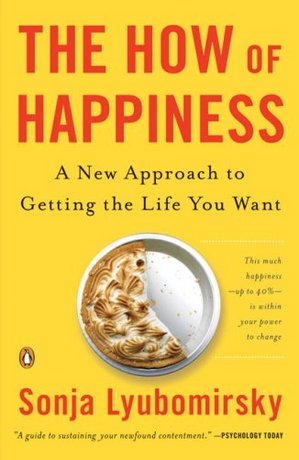Pursuit of happiness: What's your happiness 'set point'?

The pursuit of happiness is one of the fundamental rights named in the U.S. Declaration of Independence, along with Life and Liberty. The pursuit of happiness is one of the 10 core values in America. For many, however, happiness is elusive: Is happiness an impossible goal to achieve?
It turns out that a big part of happiness is not under our control after all, according to psychologists who study happiness. About half of a person’s happiness is due to set points—the built-in dispositions that result from genes inherited from parents. One person’s happiness set point might be high, and this person would always tend to be happy in life. Another person’s might be low, and this person would tend to be unhappy in life. Most people are somewhere between the two extremes.
What’s your happiness set point?
One way to find out is by using the Subjective Happiness Scale psychologist Sonja Lyubomirsky includes in her book The How of Happiness: A New Approach to Getting the Life You Want. To get an accurate reading, get her book, then answer her entire set of questions every day for a period of time and, finally, take an average. You’ll get a much more reliable estimate of your set point.
Right now, though, try just a tiny sample of her questionnaire to get a sense of how this works:
On a scale of 1 to 7, with 1 equal to “not a very happy person” and 7 equal to “a very happy person,” what score do you give yourself?
In general, I consider myself …
Compared with most of my peers, I consider myself …
What if your set point is low and you don’t like it? Lyubomirsky warns against trying to change it. “By definition, the set point is constant, immune to influence, and wired in your genes. Analogously, if you are born with brown eyes, your eyes will forever remain truly brown.”
By now you are probably asking: If 50 percent of my happiness is out of my control, what about the other half? Only about 10 percent is determined by your life circumstances—age, wealth, health, place of residence, and so forth. This means that 40 percent is under your control—determined by what you think, decide and do.
This week, we’ll explore some of the ways that you can successful pursue happiness.
Overall, do you consider yourself a happy person?
Is the pursuit of happiness your chief aim in life?
Wayne Baker is a sociologist on the faculty of the University of Michigan Ross School of Business. Baker blogs daily at Our Values and can be reached at ourvaluesproject@gmail.com or on Facebook.

